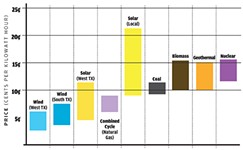Point Austin: Of Caps and Handcuffs
At budget time, there's no substitute for wrestling the numbers
By Michael King, Fri., Sept. 13, 2013

In the wake of City Council's budget vote Tuesday, Council Member Bill Spelman told In Fact Daily that he would continue to press for a "growth cap" on city spending – that is, the city budget would not be allowed to grow beyond the percentage of growth in total residential income. Sounds like a great idea – while we're at it, why don't we get the state government to restrict spending to the "estimated growth" in the state economy, or even to the growth of "personal income" in Texas?
Oh, wait a minute. The Lege already does the former – which made it doubly difficult in 2013 even to partially restore the savage 2011 cuts to public education – and in every session the usual right-wing suspects, from the governor on down to House Tea Party back-benchers, try to impose variations of the latter to make it structurally impossible to address real, persistent state needs. On second thought, it might not be a great idea to impose reactionary and arbitrary GOP spending models on Austin's city officials, who already spend a great deal of their time trying to compensate for the state's unwillingness to fund basic state needs.
Spelman's frustration is understandable. He's been fighting uphill for years on public safety spending, specifically for the Austin Police Department, and has broadly calculated that police spending has accelerated over the last decade while (as he sees it) the department workload has remained flat and most crime has in fact declined. He's gotten little traction on the subject, either with his Council colleagues or, more persistently, with public sentiment that public safety in general and the APD in particular are the highest spending priorities.
Spelman argues that the result has been both a distortion of city priorities and an unsustainable budget growth; if it can't be stopped with targeted APD cuts, then we should cap the whole budget and squeeze it down accordingly.
You can see where this is leading – alas, it ain't to reductions for the APD.
Following the Trail
Nevertheless, it was amusing this week to see Spelman form an alliance of convenience on the general subject of budget cuts with foremost APD defender Mayor Lee Leffingwell. In light of the historical spending trends, Spelman said he would vote against any new expenditures, and Leffingwell essentially did likewise until he was persuaded that Council's myriad teeter-totter proposals to spend-and-cut had succeeded in keeping the property tax rate at (or indeed slightly below) the current rate. Unlike last year, when Mayor Curmudgeon cast a final symbolic "No," this year's bloodletting ended in unanimous budget adoption, joined even by Swordsman Spelman.
Oddly enough, Council did succeed in "cutting" $1 million in projected police overtime – the portion dedicated to patrolling the overnight hike-and-bike-trail pilot program initiated by CM Chris Riley. Though Leffingwell objected, the majority considered it budget-padding by the brass, especially considering the light nighttime usage of the trails. Yet Riley also proposed adding another three dozen sworn officers to the 47 the final budget contained, arguing that in the long run, additional officers are cheaper than time-and-a-half on demand. That very late motion failed – if nothing else, it would certainly have blown the "no tax increase" headlines – yet it illustrated once again that, even among Spelman's progressive colleagues, there's no political penalty for spending on cops.
Budgets are Hard
What's expressly at stake in these budget debates is Austin's allegedly diminishing "affordability" – that is, in this immediate context, and definitely in the TV and newspaper headlines, do higher tax rates threaten to make Austin "unaffordable"? In fact, Austin's property tax rates (amplified on the one hand by rising property values, buffered on the other by publicly owned utilities) are not at all out of line with other Texas cities. Beyond that, focusing on the tax rate to the exclusion of what taxes buy for us is a myopic way for lazy editorial writers and pandering politicians to look at the problem.
Austin's prosperity and affordability, I would submit, is reinforced by the public goods the city has been able to purchase with our tax money. On my own, I can't afford parkland or libraries (both improved this go-round), or fire protection, or street maintenance, or yes, police officers – I share those expenses with my neighbors, to help build a city that we can all afford to live in. And because state officials have persistently abdicated their responsibilities to adequately share the statewide costs for public education and health care, my neighbors and I have repeatedly voted to provide more than our share of school and public health costs.
Soon we'll be asked to go to the well once again for affordable housing, and likely as not, next year we'll consider whether to do the same for public transportation. Yes, these are real financial burdens to be seriously weighed in the public balance; but they are also the prices we pay for a livable and sustainable community. The public ledger doesn't reflect only an expense column; it also addresses real public needs.
This all seems so elementary that it should hardly bear repeating, but at budget time, the maniacal focus on the property tax rate makes for widespread public misunderstanding as well as short-sighted official decisions. We can (and should) always argue over both the total numbers and the internal details, but an arbitrary "cap" on city spending is a recipe for self-destruction. We can't handcuff ourselves out of the difficult obligations of self-government.
Got something to say on the subject? Send a letter to the editor.










